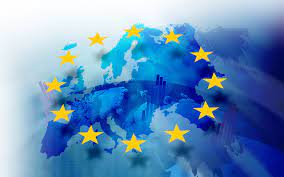Eurozone Economic Growth Weakens in May

Economic growth in the eurozone experienced a slight decline in May, reaching a low point not seen in three months. This downward trend can mainly be attributed to a decrease in industrial production.
Although growth within the 20-country region managed to stay positive for the fifth consecutive month, it has reached its weakest level since February of this year.
Simultaneously, inflation has stubbornly remained high, putting pressure on the European Central Bank (ECB) to consider raising rates.
According to the Eurozone purchasing managers' index (PMI), data indicated a decline from 54.1 in April to 53.3 in May. A value above 50 denotes growth.
The eurozone’s economy witnessed a boost from its robust services sector, while the manufacturing sector hampered overall economic performance. Private sector activity within services experienced its most significant expansion in 13 months, while manufacturing suffered a sharp decline.
What does this mean for me?
Recent official data from the European Union highlighted a rise in annual inflation within the eurozone, reaching 7% in April. This increase marked a departure from five consecutive months of declining figures.
At present, growth in the eurozone is relying heavily on the services sector, which, despite a minor loss in momentum, remains historically robust.
By contrast, the manufacturing sector is contracting at an accelerating pace, with new orders and the backlog of old orders showing sharp declines, suggesting that the boost witnessed after the pandemic has now come to an end.
More News
.webp)
Canada Shields Steel and Lumber Industries From Tariffs
6 hours ago

Trump Drops Selected Tariffs in Response to Inflation Pressures
2 days ago

Tariffs on Mexico Test Nuevo Leon’s Industrial Momentum
6 days ago

US Moves to Ease Latin American Tariffs as Food Inflation Mounts
1 week ago

Japan Faces First GDP Shrinkage in Six Quarters as Tariffs Bite
1 week ago

India’s Inflation Dip Strengthens Case for RBI Easing
2 weeks ago

Europe Rallies as Shutdown Eases, Earnings Impress
2 weeks ago

Germany’s Trade Surplus Slides as Imports Outpace Exports
2 weeks ago